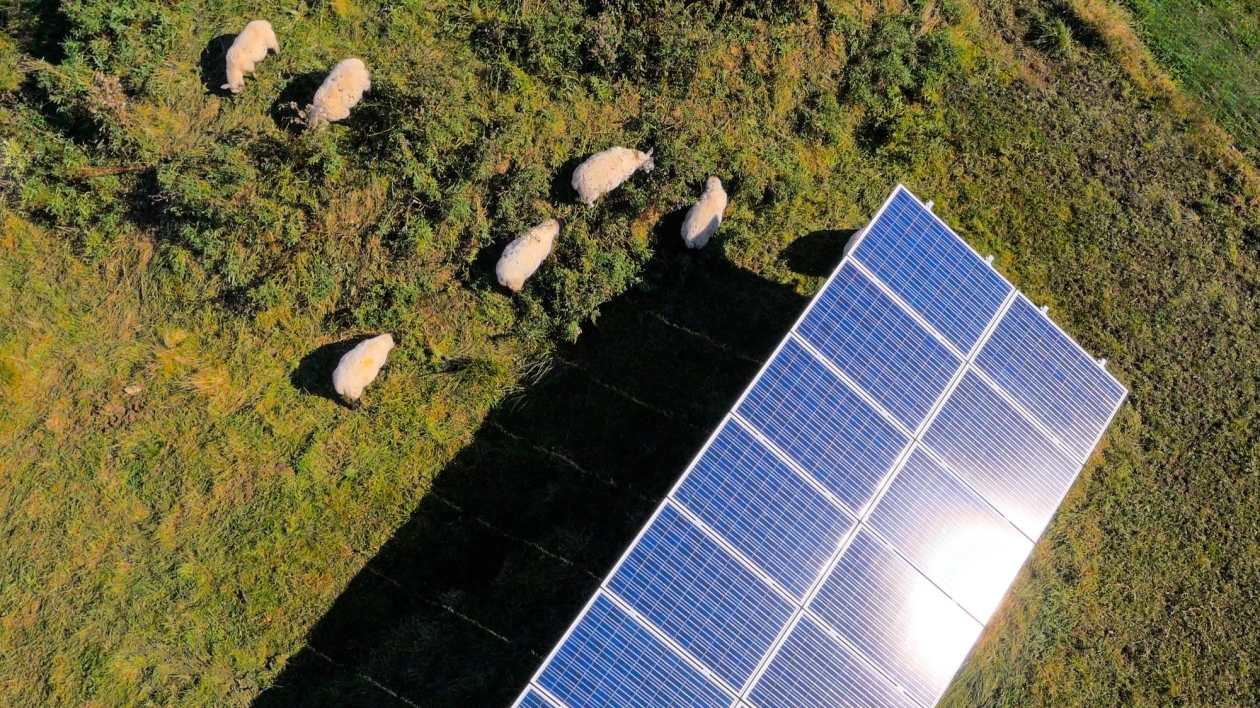The race for sustainable investment in the ‘Post – Paris’ landscape
Nigel Labram, Investment Strategist at Low Carbon, reflects on the first ‘test’ for the Paris deal and how the investor community can combat the negative effects of climate change through sustainable investment
It’s certainly been a ‘big’ month for the global renewable energy industry with the news that 175 countries put ink to paper and signed the historic Paris climate deal on Earth Day 2016. The case for sustainable investment – investing in cleaner energy sources – has never seemed quite so compelling for today’s savvy UK investor community.
The Paris Agreement has opened up the eyes of global governments to the need for new legislation and policies that will create a more positive investment environment into renewable energy. More must be done in this area, however, to ensure that the UK in particular delivers on its pledges and that all areas of the investment sector are engaged in the fight against climate change.
Engaging investors
One only has to glance through the papers to see the widespread attention that the ‘divestment’ movement is generating in the ‘Post- Paris’ landscape. Perhaps one of the boldest call to actions for the divestment cause, recently came from the Rockefeller family fund which is openly divesting from fossil fuels. When you consider that the Rockefeller name has been synonymous with the oil industry for many years – this is particularly poignant.
Make no mistake that this is not a case of ‘tree – hugging’. Divesting and reinvesting into climate change solutions such as solar PV and onshore wind, can present strong financial returns. The government, in collaboration with the energy and investment industries can do more to educate the market on the robust and low – risk returns that are to be had from climate change solutions projects. After all, the move to a low carbon economy will require greater levels of investment into low – carbon assets.
Proven technologies, proven returns
As outlined in recent research by the Intergenerational Foundation think-tank – renewable energy technologies have a strong proven track record and can generate the UK’s electricity needs, whilst improving the overall energy mix. Moreover, solar PV panels, for example, have been actively generating electricity for at least twenty years with investment in PV projects increasing dramatically over that time. Onshore wind, also twenty years old, was recently described the Department of Energy and Climate Change (DECC) as ‘the leading individual technology for the generation of electricity from renewable sources in 2014.’ The myth that renewable energy technology is too ‘new’ or ‘unproven’ is just that – a myth. The statistics are there for investors to see.
The continued volatility of oil prices has created global market uncertainty. The benefit of investing into climate change solutions, on the other hand, is that they are not volatile to the same extent and their marginal cost of production is zero. Even if investors still don’t believe in climate change, investments into climate change solutions stand up to financial scrutiny. They are typically inflation-linked and long term contracts which generate attractive returns. Finally, the majority of climate solution projects are, essentially, infrastructure projects. The words ‘green’ or ‘renewable’ don’t have to be mentioned at all, which can be the difference in convincing reluctant investors of their viability as credible investments.
The ‘Post-Paris’ investor
Global investment consultancy firm, Mercer, recently conducted a report into the ‘climate aware’ investors of the future. These investors will take on the role of ‘future makers’, realising that our FTSE 100 will not always be dominated by the major fossil fuel players such as Shell or BP and that renewable energy companies will soon make their way into the mainstream market. Finally, according to Mercer, future makers will apply the motives and beliefs behind their personal investments to his/her business portfolio. For example, if they can see the impressive returns made on their household PV then there is significant potential to make money from investing in solar PV projects at scale.
The French government is making strides to create ‘future maker’ investors and is now calling on institutional investors to both disclose and measure the carbon intensity of their investment portfolio, as the Task Force on Climate related Financial Disclosures (TCFD) consults on whether pension funds and asset managers should also disclosure climate related financial risks and opportunities, I hope to see this call to action and level of engagement imitated by governments globally, especially in the aftermath of the ratification of the Paris agreement. If this occurs, it will ultimately create a more mainstream and positive climate solution investment environment for future generations, and will greatly help in creating the ‘Post- Paris’, climate aware future makers for the task ahead.
The race is on
With the historic Paris agreement signed and widely recognised momentum and support for the renewable energy industry continuing to grow, there has never been a more opportune moment for the institutional investor community to reinvest into climate change solutions. Investors may be unaware of the crucial part they have to play in the global fight against climate change and it is therefore integral that government and the energy industry continue to educate and inform. The transition to a low carbon economy can be achieved if a change is made now.
This article was originally published on Business Green

